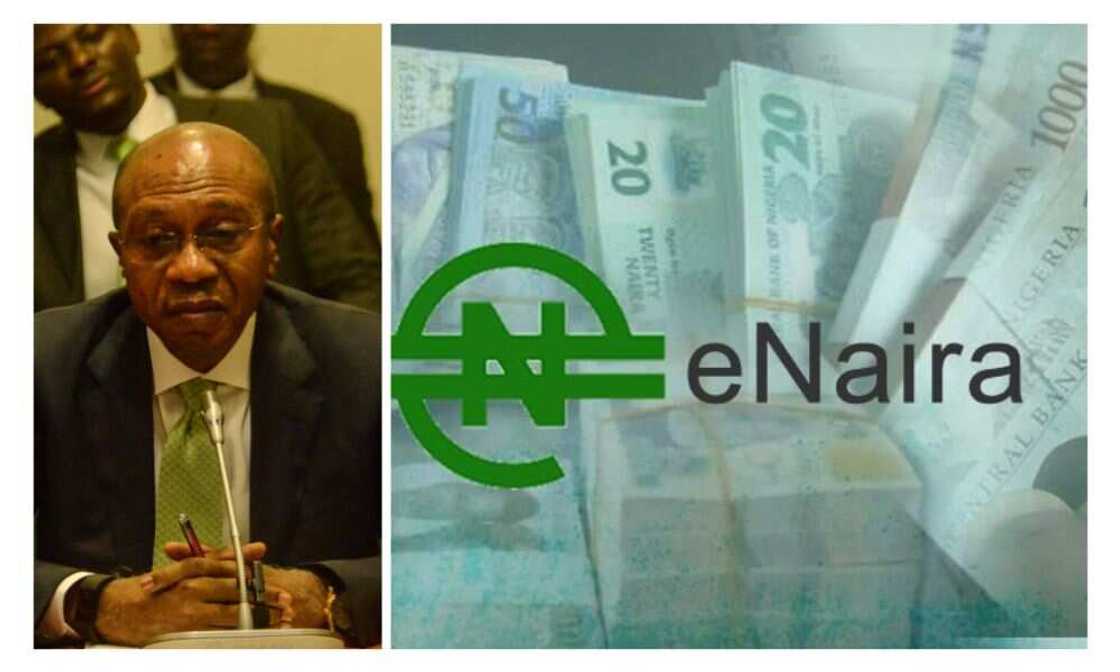“No Smart Strategies”: Why Nigerians Shun eNaira, Opt For Mobile Money, IMF Tells CBN
- The International Monetary Fund (IMF) has told the Central Bank of Nigeria what to do to make Nigerians accept the eNaira
- The IMF stated that there are serious challenges facing the acceptance of digital currency in the country
- In a report, the IMF said the adoption of the eNaira has been disappointingly low
PAY ATTENTION: Click “See First” under the “Following” tab to see Legit.ng News on your Facebook News Feed!
The International Monetary Fund (IMF) has counselled the Central Bank of Nigeria (CBN) on what to do to boost eNaira adoption in Nigeria.
The IMF revealed in a recent report that the adoption of the eNaira in the country could be much higher.

Source: Getty Images
IMF details why Nigerians are shunning the eNaira
A recent report by the International Monetary Fund (IMF) has assessed the adoption of Nigeria’s digital currency, the eNaira, as disappointingly low.
PAY ATTENTION: Follow us on Instagram - get the most important news directly in your favourite app!
The IMF said that CBN’s success in maintaining the uninterrupted operation of the eNaira is commendable, despite cyber security challenges.
The report says that the takeoff of digital currency could be higher among households and merchants.
The IMF report noted that the digital currency witnessed an initial upsurge in downloads in the early stages but gradually thawed after reaching 500,000 download units.
The report said that subsequent downloads of the eNaira became slow and took 63 days to reach 600,000 downloads.
As of the end of November 2021, the IMF said that eNaira downloads reached 700,000 and now stand at 860,000, representing an abysmal 0.8% of Nigeria’s active bank account owners.
Nigerian abandon eNaira wallets after downloads
In comparison, the number of active merchants using the eNaira wallets reached 100,000, just a tiny fraction of merchants using PoS terminals for card payments.
The IMF’s report showed that most eNaira wallets remain inactive and unfunded, with only a limited time of heightened activity.
On average, there have been about 14,000 eNaira transactions weekly since the digital currency launched, representing a disappointing 1.5%, IMF said.
It also stated that 98.5% of wallets had not been used at any given week.
The average value per eNaira translation has been about N923 million weekly, amounting to 0.0018% of the average money supply during the period, with the average value per transaction standing at N60,000.
The IMF, however, said it is too early to pass a final verdict on the fate of the digital currency, stating that the early approach taken by the apex bank, granting access to only customers with banks while restricting transactions to use onshore, has limited the real benefits of the eNaira adoption for most wallet holders.
CBN needs to employ smart strategies
IMF noted that eNaira faces serious competition from networks such as mobile money, which offer similar services with broad acceptance.
The CBN has entered the second phase of the eNaira project, aiming to broaden the coverage of the digital currency by including individuals without bank accounts but with mobile phones and valid KYC information.
IMF stated in the report that the success of digital currency depends on breaking the low adoption balance by employing intelligent strategies and a bit of luck.
The report highlights the importance of competing with well-established incumbent networks, such as mobile money, which are widely accepted.
CBN asks FG to use eNaira to transfer N368.8 billion to Nigerian
Legit.ng reported that the Central Bank of Nigeria had pitched the eNaira to the federal government as the best alternative for sharing $800 million, about N368.8 billion, in its National Social Safety Net Programme Scale Up.
The pitch by the CBN is an effort to drive and strengthen its cashless policy.
The pitch was contained in CBN’s National Fintech Strategy document.
Source: Legit.ng





